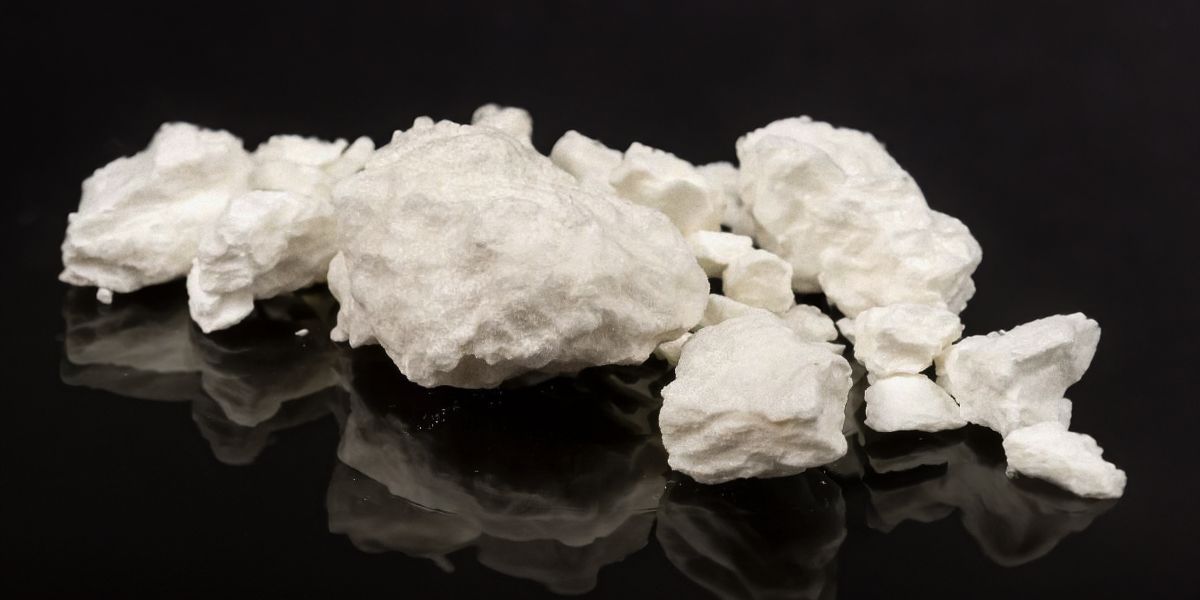Crack Cocaine Withdrawal: Symptoms and Detox

Crack cocaine is a highly addictive stimulant drug, and withdrawal from it can be a complex and demanding process. Understanding the symptoms and available treatment options is crucial for effective management.
When people stop smoking crack cocaine, they often face a range of crack cocaine withdrawal symptoms. These symptoms can be hard on the body and the mind. Without proper intervention, these symptoms can be challenging to manage.
Recognizing the withdrawal stages and seeking professional treatment are crucial steps toward recovery. Medical professionals play a crucial role in easing this process and minimizing the risk of relapse.
What Is Crack Cocaine Withdrawal?
Crack cocaine withdrawal includes the physical and mental symptoms that occur when someone suddenly stops using the drug. As a potent stimulant, crack cocaine causes significant changes in brain chemistry. When usage stops, the brain struggles to adapt, resulting in withdrawal symptoms.
The intensity and length of withdrawal symptoms can vary. This depends on factors like the person’s history of use, overall health, and any mental health conditions they may have. Effective withdrawal management requires a comprehensive approach that addresses both physical and mental aspects.

Credit: Ted McGrath
CC BY NC SA 2.0
What Causes Crack Withdrawal?
Crack withdrawal is a direct reaction to the body’s dependence on the drug. Chronic use of crack cocaine leads to changes in the brain’s chemistry, particularly in dopamine production and regulation. These changes result in the brain relying on the drug for normal functioning.
When a person stops using crack cocaine use, the sudden lack of dopamine triggers withdrawal symptoms. Factors influencing the severity of withdrawal include:
- Prolonged use of crack cocaine
- High frequency of use
- Large amounts consumed
- Co-occurring mental health disorders
- Lack of support systems
These factors collectively determine the severity and duration of withdrawal symptoms and the overall timeline of the withdrawal process.
Withdrawal Symptoms of Crack Cocaine
The symptoms of crack cocaine withdrawal can be severe and include both physical and mental health effects. Common withdrawal symptoms include:
- Physical symptoms: Fatigue, increased appetite, and changes in blood pressure
- Mental symptoms: Anxiety, depression, and intense cravings for the drug
- Behavioral symptoms: Agitation, irritability, and difficulty concentrating
Acute withdrawal symptoms often peak within the first few days of stopping use. These symptoms can be particularly intense, including severe fatigue, vivid nightmares, heightened cravings, and restlessness.
As acute symptoms diminish, post-acute withdrawal symptoms (PAWS) can persist for an extended period. These symptoms may include mood disturbances, persistent cravings, and difficulty experiencing pleasure, requiring long-term management strategies.
Crack Cocaine Withdrawal Timeline
The timeline for crack cocaine withdrawal is influenced by several factors, including the duration of use, the quantity consumed, and the person’s health. Understanding this timeline is crucial for preparation and management during recovery.
First 24-72 Hours: Acute Withdrawal Symptoms Peak
Within the first 24 to 72 hours after stopping crack cocaine use, you typically encounter the peak of acute withdrawal symptoms. Severe fatigue, depression, and intense cravings are common. During this period, the body undergoes significant neurochemical adjustments because of the abrupt absence of the drug. These changes can result in pronounced physical and psychological discomfort, making this phase particularly challenging without medical support.
First Week: Gradual Decrease in Symptom Intensity
As the first week progresses, withdrawal symptoms generally begin to lessen, although discomfort persists. Common symptoms during this stage include irritability, sleep disturbances, and mood fluctuations.
Physical symptoms such as fatigue may be reduced, but emotional and mental challenges often remain. Sleep patterns are typically disrupted, with many experiencing vivid, distressing dreams. Ongoing supportive care during this phase is essential to manage symptoms effectively.
Weeks 2-4: Persistence of Post-Acute Withdrawal Symptoms (PAWS)
In the two to four-week period, post-acute withdrawal symptoms often emerge. Symptoms like anxiety, low energy, and enduring cravings are common.
The body continues to rebalance its brain chemicals, contributing to feelings of restlessness and agitation.
Emotional challenges, such as depression and decreased motivation, are prevalent, and the risk of relapse is high during this time. Structured therapy and medical supervision are needed to navigate this challenging phase.
Beyond 4 Weeks: Long-Term Post-Acute Withdrawal Symptoms (PAWS)
After four weeks, many people may experience long-term PAWS, including ongoing mood disturbances and intermittent cravings. Although the most severe symptoms usually wane, residual withdrawal effects can persist for months. Difficulties in emotional regulation and pleasure response are common. Continued support through counseling, lifestyle modifications, and participation in recovery programs is imperative for sustaining long-term sobriety and preventing relapse.

Medical Detox for Crack Cocaine at Northridge Addiction Treatment Center
Northridge Addiction Treatment Center (NATC) provides a medical detox program with around-the-clock medical supervision to withdraw safely in a peaceful and secure environment.
NATC’s medical detox program includes a comprehensive assessment to understand everyone’s health status and substance use history. This allows for the development of a personalized treatment plan, specifically targeting withdrawal symptoms to reduce discomfort. With 24/7 medical supervision, potential complications are promptly managed, enhancing safety during the detox process.
Beyond medically supervised detox, NATC provides various evidence-based addiction treatments and therapies, including medication-assisted treatment, dual diagnosis, and cognitive behavioral therapy (CBT).
By addressing both the physical and psychological dimensions of addiction, NATC significantly enhances the likelihood of achieving and maintaining long-term recovery.
Contact us today. Our caring treatment specialists are eager to help you get on the path to recovery.
Find Meaningful Recovery
Our caring and compassionate specialists are eager to help you comfortably navigate this journey to recovery. Our individualized treatment plan, programs, and therapies may be a perfect match for you or your loved one. Let us assist you in living the happy life you deserve. It starts with a phone call.




